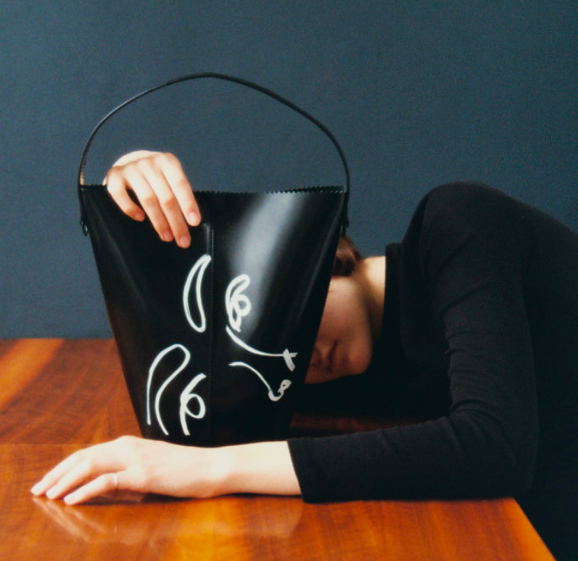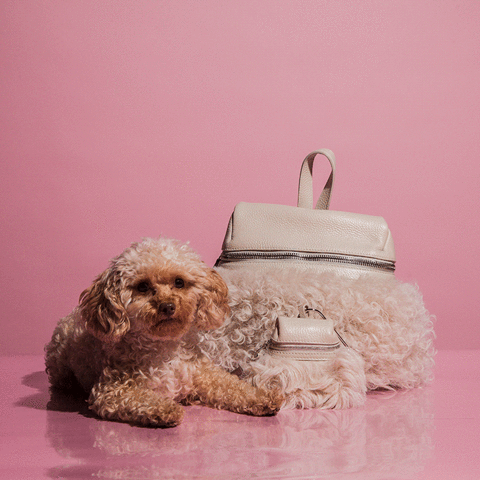Creative Spotlight: Sarah Law of KARA
Sarah Law is the Founder and Creative Director of KARA . The handbag line that she started in 2013 has become a coveted range of accessories to not just girls who love fashion, but also as a unisex collection for the creative sexes.
Interview by Alexa Wilson
AW: Have you always wanted to be a designer? When did you realize it was something you could turn into a serious career?
SL: I wouldn't say I always knew being a designer could be my job but since I was a kid I always wanted to support myself by making things. Around the time I started looking at colleges, I understood that it was a career many people had. While I was studying at Parsons, I became very interested in having my own business. I use to make and sell canvas portfolio bags to my classmates.
When I found out that KARA is taken from “karaoke”, my mind immediately went to that classic night-out activity. But it’s way deeper than that. Can you talk to me more about where the name comes from?
Individuality and self expression are core tenets of the brand. KARA celebrates all the things in life that let you be exactly who you are. Karaoke means “Empty Orchestra” in Japanese. It felt very fitting - a place to create and express yourself, something you can do with your friends, have fun without a filter. Coming from a multicultural background and growing up in Hong Kong, it also felt important that the name was something simple, relatable, easy to understand across different cultures and languages.
Is there a general ethos or set of guidelines you keep in mind while designing?
I am inspired by people who have their own personality, who passionately live out their point of view. That sense of freedom and confidence is important. Sometimes the brand is here to amplify what they are trying to say, so the product is loud and unique. Other times it's about letting the individual speak for themselves, so the design is simple and thoughtful.
How does material play into your design process?
Developing hyper novel and durable, everyday materials is an integral part of the design process. We spend a lot of time sourcing and working with suppliers to create materials that translate a conceptual idea into a final, tangible product.
Why did you hone in on the handbag as your specialty?
Honestly, not having to deal with sizing. I started the business on my own, in my apartment with money I saved when I was 25 years old. Massimo Vignelli had a quote "one life is too short for doing everything". The year he died, the New York Times put that quote on the cover of their end of year review magazine. I have that cover framed and it hangs by my bed. When I started, bags felt like a way to stay focused. It's one category and a great design can speak to a lot of people regardless of size, age, or cultural background.
You have an office in Chinatown, NYC. How does your neighborhood inform your work?
The office is really on the border of Chinatown, Soho and Tribeca. It's like a melting pot of the three neighborhoods. The area exposes you to a lot of different cultures, people and jobs. Each has a unique character and visual references even though they are on top of each other. I also find it interesting that environments can exist so close together and still be entirely different.
What does “individuality” mean to you? Why is it important?
It means freedom and peace of mind. It’s the difference between thriving and surviving.
via @evachen212: SHEARLING MINI SHOPPER IN BOTTLE GREEN
Were there any initial hurdles to building your business? How did you overcome them?
My dad always tells me that "if you don't have headaches, you aren't in business." and damn, is that true. There are hurdles and you force yourself to overcome them and then the next hurdles are even bigger. I think they call it running a business because it really is a race. I’m not always sure how I overcome them, but I keep working and at the end of the day, it is because I believe in what I am doing - the brand exists for an important reason.
Three words to describe your aesthetic.
Simple, Thoughtful, Adaptable.
In the future, what spaces and paths do you want to see women carving in the fashion industry?
I would love to see more women stay in the industry and having a meaningful place after the age of 35. I would love to see younger women, learn at an early age, how to speak up for themselves and ask for what they want. I would love for beauty and attractiveness to reflect all ages, body types, and ethnicities.
photo credit: Karastore.com, @karastore

















